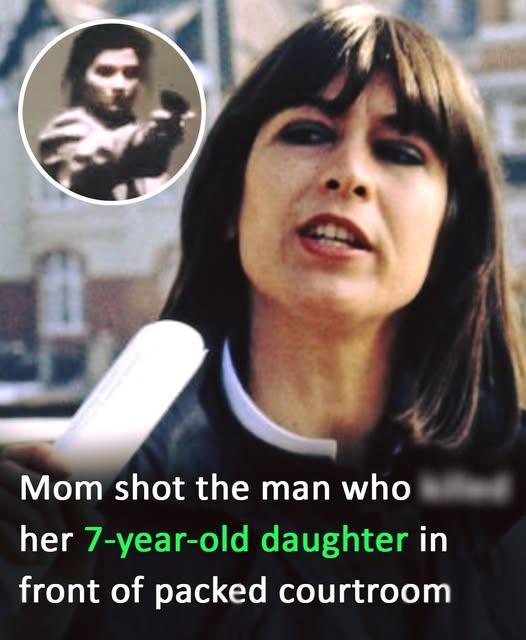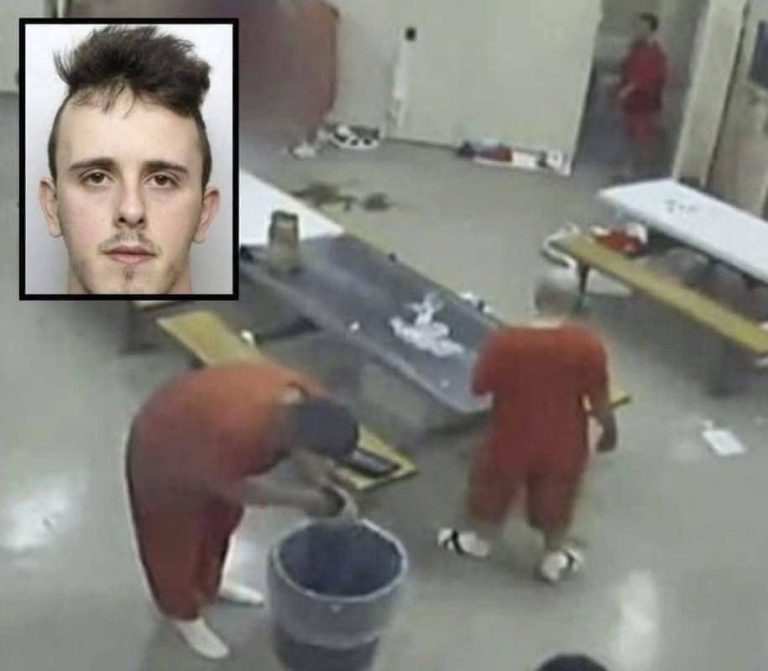“Vigilante Justice: Meet the ‘Revenge Mom’ Who Confronted the Person Responsible for Her Child’s Fate in Court”
On March 6, 1981, Marianne Bachmeier walked into a courtroom in Lübeck, Germany, carrying an overwhelming sense of loss and determination.
In a moment that would forever mark her legacy, she took out a pistol from her purse and confronted 35-year-old Klaus Grabowski, the man accused of kidnapping and harming her 7-year-old daughter, Anna Bachmeier
What followed was a dramatic courtroom scene that left Grabowski fatally wounded. Marianne was immediately taken into custody, showing no signs of regret. Even four decades later, her actions continue to spark debate, dividing public opinion on the limits of justice and retribution.

The loss of a child is one of the most profound tragedies a parent can face. Marianne Bachmeier, a struggling single mother running a pub in northern Germany, had already faced numerous hardships in her life. Her past was marked by adversity, and she had endured personal trauma long before the fateful day her daughter disappeared.
On May 5, 1980, Marianne’s world was shattered. After an argument with her mother, young Anna skipped school and set off to visit a friend. On the way, she encountered Klaus Grabowski, a local butcher with a criminal past. Grabowski, who had previously been convicted of crimes against children, held Anna captive before ultimately ending her life.
Anna’s remains were found near a canal, and Grabowski was arrested later that evening after his fiancé turned him in to authorities. As the investigation unfolded, the case took an even more distressing turn when Grabowski claimed that Anna had attempted to manipulate him. His statements only intensified Marianne’s anguish, leaving her feeling helpless as the legal proceedings began.
Three days into Grabowski’s trial, overwhelmed by emotion, Marianne took decisive action. She managed to bring a firearm into the courtroom, bypassing security checks. In a moment of heightened emotion, she directed the weapon at the accused and fired, ensuring he would never stand trial for his alleged crimes. Witnesses recalled her expressing her heartbreak and frustration in the moments that followed.
Marianne was immediately detained and faced legal consequences for her actions. During her trial in 1982, she testified that she had acted in a dreamlike state, as if reliving the trauma of her daughter’s fate. However, experts suggested that her actions required prior preparation, indicating an element of planning.
Her sentencing was widely publicized, sparking a national conversation about justice, morality, and grief. Some saw her as a grieving mother driven by unbearable pain, while others believed she had taken matters too far. Ultimately, she was convicted of manslaughter and unlawful possession of a firearm, receiving a six-year prison sentence, though she served only three years before being released.
Following her time in prison, Marianne sought a new beginning. She moved to Nigeria, later relocating to Sicily, Italy. Unfortunately, her life was once again cut short when she was diagnosed with pancreatic cancer. She returned to Lübeck, where she passed away in 1996. She was laid to rest beside her daughter, a poignant reminder of their unbreakable bond.

Marianne Bachmeier’s story remains a subject of debate. Some view her actions as a mother’s desperate pursuit of justice, while others believe that taking the law into one’s own hands undermines the justice system. Regardless of perspective, her story continues to evoke strong emotions and remains one of the most talked-about cases of its kind.






